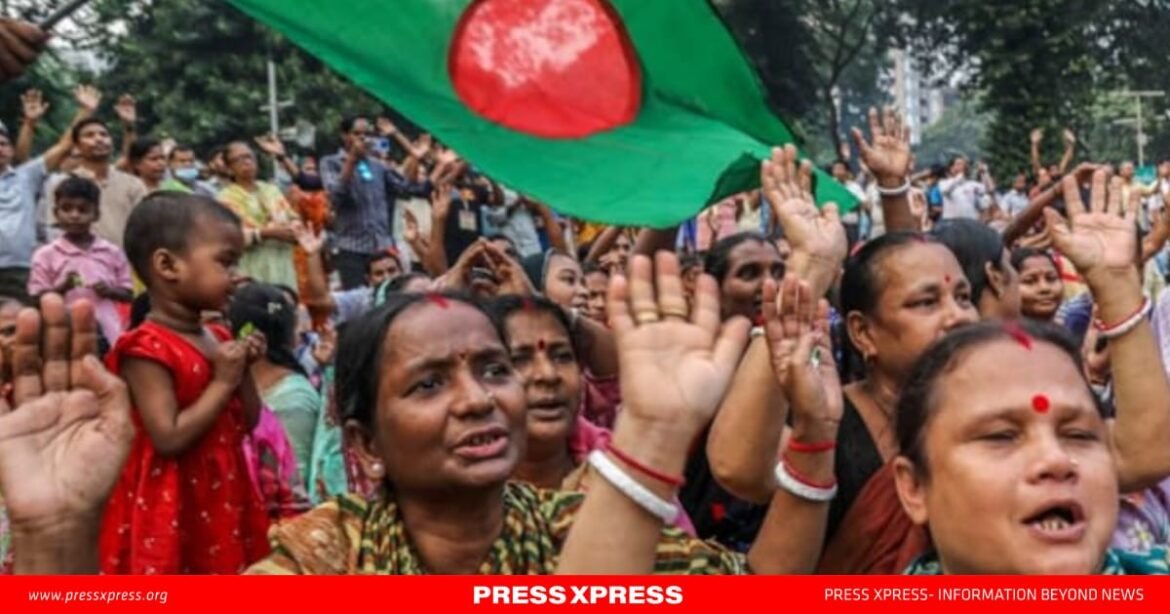Notably, the official statement from Bangladesh’s interim government characterized the discussion as covering issues of “mutual interest,” omitting any direct reference to human rights or minority protections. This discrepancy has drawn attention, highlighting potential differences in the two nations’ narratives regarding the conversation’s content.
In recent developments, the United States has intensified its engagement with Bangladesh’s interim government, expressing deep concerns over human rights violations, particularly those affecting minority communities. This diplomatic focus comes amid escalating tensions between Bangladesh and India, following a series of attacks on Hindus and other minorities within Bangladesh—incidents that the current interim government has often dismissed as “media exaggeration.”
US-Bangladesh Diplomatic Engagement
On December 23, 2024, US National Security Advisor Jake Sullivan held a telephone conversation with Bangladesh’s Chief Adviser Muhammad Yunus. According to a White House statement, both leaders reaffirmed their commitment to upholding and protecting the human rights of all individuals, irrespective of religious affiliation. Sullivan reiterated the United States’ support for a prosperous, stable, and democratic Bangladesh, offering continued assistance in addressing the nation’s challenges.
Notably, the official statement from Bangladesh’s interim government characterized the discussion as covering issues of “mutual interest,” omitting any direct reference to human rights or minority protections. This discrepancy has drawn attention, highlighting potential differences in the two nations’ narratives regarding the conversation’s content.
Rising Concerns Over Minority Rights
The US engagement follows a surge in violence against minority communities in Bangladesh, particularly Hindus. Reports indicate that since the departure of former Prime Minister Sheikh Hasina in August 2024 from Bangladesh, there have been over 2,000 attacks on Hindus. These incidents have prompted large-scale protests, with approximately 30,000 Hindus rallying in Chattogram to demand greater protection and legal reforms to safeguard their rights.
Against this backdrop, in the month of October, Press Xpress Correspondent Dastagir Jahangir raised question about U.S. stance on Religious Freedom Concerns in Bangladesh. Press Xpress asked to Mathew Miller, “How does the U.S. view this, and will it engage with the Bangladeshi government to protect religious freedom and minority rights?”
Mathew Miller received the question and later on The U.S. State Department followed up on the query with a formal response. It response reiterated the U.S. government’s commitment to supporting religious freedom and human rights in Bangladesh, stating “We have seen media reports that Bangladeshi police arrested individuals in response to their alleged actions at a Durga Puja celebration.”
International figures, including Indian Prime Minister Narendra Modi, have expressed concerns over the safety of minority communities in Bangladesh. The US has echoed these apprehensions, urging Dhaka to ensure the protection of all citizens and uphold fundamental freedoms.

Bangladesh’s Political Transition and Human Rights Commitments
The interim government, led by Nobel laureate Muhammad Yunus, had pledged to prioritize human rights reforms which seems to be fading now with recent incidents of violence, oppressions and lawlessness. In August 2024, Amnesty International called on the new administration to take immediate actions to protect Hindu and other minority communities, emphasizing the need for justice, reparations, and guarantees of non-recurrence for affected groups.
Despite these commitments, the situation seems to be only deteriorating.
Rights groups have condemned the interim government’s recent decision to revoke press accreditations for 167 journalists, viewing it as a move that undermines press freedom and echoes the undemocratic practices of the previous regime.
International Pressure and Future Implications
The international community continues to monitor Bangladesh’s human rights situation closely. US lawmakers have advocated for sanctions against Bangladeshi officials implicated in rights abuses, signaling a potential shift towards more assertive measures if conditions do not improve.
As Bangladesh navigates its political transition, the interim government’s dubious actions concerning human rights and minority protections will significantly influence its international relationships. The US has made it clear that safeguarding human rights is integral to the bilateral relationship, and future cooperation may hinge on tangible improvements in this area. In conclusion, while the dialogue between the US and Bangladesh highlights a mutual acknowledgment of human rights issues, the divergence in public statements and ongoing incidents of violence against minorities with no law and order in the nation suggest a failure of promises claimed. The interim government’s ability to implement effective reforms will be crucial in determining Bangladesh’s path toward stability and democratic governance.


